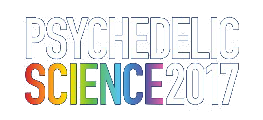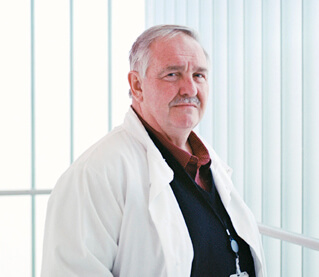The Beckley Sessions
.
Jordi Riba
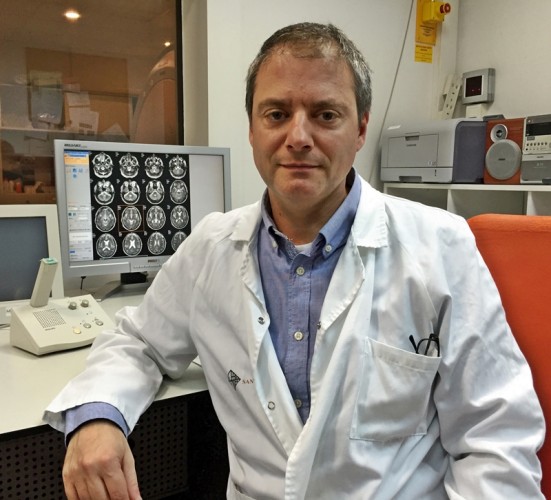 Jordi will present his group’s most recent findings on the therapeutic potential of ayahuasca. Psychedelics, and ayahuasca in particular, are powerful substances with a demonstrated capacity to change pathological patterns of thought and behaviour, such as those observed in depression and addiction. Evidence that the human central nervous system undergoes functional and structural changes throughout adult life has overturned the old paradigm of an immutable brain. As shown in studies in animals, new neurons are constantly being born and integrated into neural circuits in a process known as neurogenesis. The beneficial effects of ayahuasca result from its ability to continue to modulate brain function beyond the acute psychedelic state.
Jordi will present his group’s most recent findings on the therapeutic potential of ayahuasca. Psychedelics, and ayahuasca in particular, are powerful substances with a demonstrated capacity to change pathological patterns of thought and behaviour, such as those observed in depression and addiction. Evidence that the human central nervous system undergoes functional and structural changes throughout adult life has overturned the old paradigm of an immutable brain. As shown in studies in animals, new neurons are constantly being born and integrated into neural circuits in a process known as neurogenesis. The beneficial effects of ayahuasca result from its ability to continue to modulate brain function beyond the acute psychedelic state.
About Jordi Riba:
Dr. Riba holds a Ph.D. in Pharmacology and leads the Human Neuropsychopharmacology Research Group at Sant Pau Hospital in Barcelona. He has studied ayahuasca for over fifteen years and has published nearly forty journal articles and book chapters on the subject (subjects include psychedelics, psychostimulants, cannabinoids, and kappa receptor agonists). He has supervised two doctorate theses on the acute and long-term effects of ayahuasca in humans, and collaborated in the first clinical studies involving ayahuasca administration to patients with depression.
.
Amanda Feilding
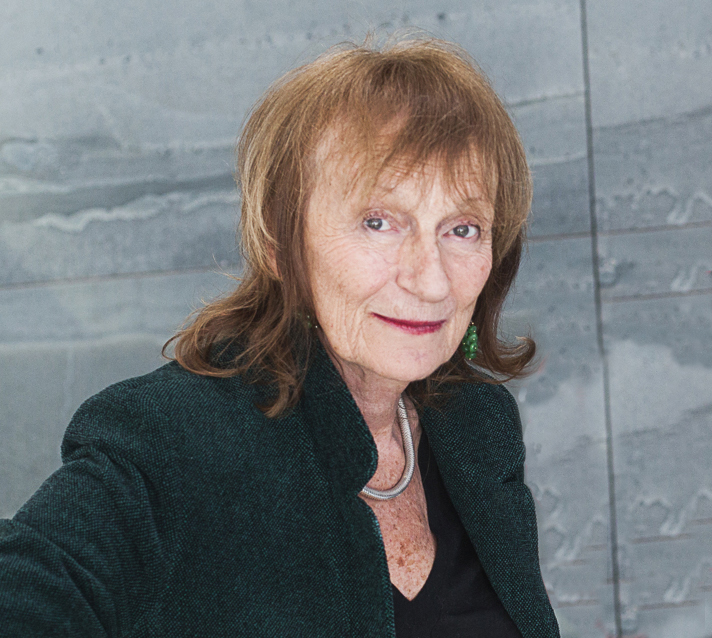 Amanda will introduce the Beckley Foundation’s Scientific Programme and explain its role in shaping the psychedelic renaissance. Beginning with a brief history of psychedelics and what has motivated her long-standing interest in the subject, Amanda will then summarise the foundation’s latest findings, including the first ever brain imaging study of LSD, and results from the psilocybin for depression study. She will talk about research into ayahuasca/DMT and the neural and psychological mechanisms whereby ayahuasca exerts effects on the human psyche. Finally, Amanda will introduce new studies that the foundation is developing and conclude with the observation that much of the potential of psychoactive substances has yet to be explored.
Amanda will introduce the Beckley Foundation’s Scientific Programme and explain its role in shaping the psychedelic renaissance. Beginning with a brief history of psychedelics and what has motivated her long-standing interest in the subject, Amanda will then summarise the foundation’s latest findings, including the first ever brain imaging study of LSD, and results from the psilocybin for depression study. She will talk about research into ayahuasca/DMT and the neural and psychological mechanisms whereby ayahuasca exerts effects on the human psyche. Finally, Amanda will introduce new studies that the foundation is developing and conclude with the observation that much of the potential of psychoactive substances has yet to be explored.
About Amanda Feilding:
Amanda Feilding is the Founder and Director of the Beckley Foundation. Amanda established the foundation in 1998 to further research into the therapeutic and transformative potential of psychoactive substances forbidden by prohibitionist policies, and has since been called the ‘hidden hand behind the renaissance of psychedelic science and drug policy reform.’ Through the Scientific Programme, Amanda orchestrates collaborations with leading scientists worldwide, investigating cannabis, psilocybin, LSD, Ayahuasca, DMT and MDMA. These include clinical trials identifying the effects of psychoactive substances on cerebral circulation, brain function, subjective experience, and clinical symptoms. She co-directs the thriving Beckley/Imperial Research Programme with Prof David Nutt.
.
David Nutt
David’s talk will cover the history of psychedelic research and show how modern imaging studies have led to great insights into not only how these drugs work but also how the brain works. It will show Imperial’s several imaging studies with psilocybin and the recent one with LSD confirming that psychedelic drugs significantly alter brain connectivity. Finally it will explain how the research helped underpin the value of psychedelics in the treatment of depression and other psychiatric disorders and led to the first trial of psilocybin in resistant depression with remarkable results.
About David Nutt:
Dr. Nutt is the Director of the Neuropsychopharmacology Unit in the Division of Brain Sciences at Imperial College, London,Vice-President of the European Brain Council, and chair of the Independent Scientific Committee on Drugs (ISCD). He is the past President of the European College of Neuropsychopharmacology (ECNP), of the British Neuroscience Association and of the British Association of Psychopharmacology. Dr. Nutt is editor of the Journal of Psychopharmacology and author of Drugs without the Hot Air.
.
Leor Roseman
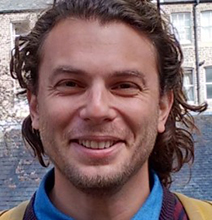 Leor’s talk will address some components of the recently completed pilot study investigating the efficacy of psilocybin for treatment-resistant depression. He will discuss the fMRI data recorded before and after psilocybin-assisted therapy showing enhanced amygdalar activity in response to emotional faces after therapy. He will also discuss this effect in terms of its contrast to the blunted amygdalar response following traditional antidepressants. His talk will emphasise that psychedelic-assisted therapy could be a treatment avenue that preserves, and potentially even enhances emotional receptiveness.
Leor’s talk will address some components of the recently completed pilot study investigating the efficacy of psilocybin for treatment-resistant depression. He will discuss the fMRI data recorded before and after psilocybin-assisted therapy showing enhanced amygdalar activity in response to emotional faces after therapy. He will also discuss this effect in terms of its contrast to the blunted amygdalar response following traditional antidepressants. His talk will emphasise that psychedelic-assisted therapy could be a treatment avenue that preserves, and potentially even enhances emotional receptiveness.
About Leor Roseman:
Leor Roseman did his BSc in Neuroscience in Tel Aviv University. Since June 2013, he has been working under the supervision of Prof. Nutt and Dr. Carhart-Harris as a research assistant, MRes student and PhD student in neuroscience as part of the Beckley-Imperial Research Program. Leor specialises in analysis techniques of fMRI, and his main focus is the study of psychedelic visual imagery and its neural correlates.
.
Mendel Kaelen
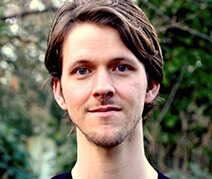 Mendel will present his research into the profound capacity of psychedelics and music to alter consciousness. He will tell the story of how both have been used by humans for thousands of years across cultures, and how an increasing number of modern clinical trials are assessing the therapeutic potential of psychedelics with promising results. Mendel will present recent findings from the study of how psychedelics and music work together in the brain to change subjective experience; share insights from the study of patient-experiences with music during psychedelic therapy; and will discuss the implications and prospects of using music in psychedelic therapy.
Mendel will present his research into the profound capacity of psychedelics and music to alter consciousness. He will tell the story of how both have been used by humans for thousands of years across cultures, and how an increasing number of modern clinical trials are assessing the therapeutic potential of psychedelics with promising results. Mendel will present recent findings from the study of how psychedelics and music work together in the brain to change subjective experience; share insights from the study of patient-experiences with music during psychedelic therapy; and will discuss the implications and prospects of using music in psychedelic therapy.
About Mendel Kaelen:
Mendel Kaelen holds a master’s in neuroscience from the University of Groningen and is now a PhD candidate at Imperial College London. His research interest lies in studying the role of music in psychedelic therapy from a neuroscience perspective. For his work he uses neuroimaging data from healthy volunteers administered with LSD as well as from an ongoing clinical trial with psilocybin to treat major depression. He is research fellow of the Beckley Foundation, and board member of the OPEN Foundation.
Podcast
- All
Links
- All
Support
- All
BIPRP
- All
Science Talk
- All
Amanda's Talks
- All
- Video Talk
- Featured
- 2016 Onwards
- 2011-2015
- 2010 and Earlier
- Science Talk
- Policy Talk
One-pager
- All
Music
- All
Amanda Feilding
- All
Events
- All
Highlights
- All
Psilocybin for Depression
- All
Current
- All
Category
- All
- Science
- Policy
- Culture
Substance/Method
- All
- Opiates
- Novel Psychoactive Substances
- Meditation
- Trepanation
- LSD
- Psilocybin
- Cannabis/cannabinoids
- Ayahuasca/DMT
- Coca/Cocaine
- MDMA
Collaboration
- All
- Beckley/Brazil Research Programme
- Beckley/Maastricht Research Programme
- Exeter University
- ICEERS
- Beckley/Sant Pau Research Programme
- University College London
- New York University
- Cardiff University
- Madrid Computense University
- Ethnobotanicals Research Programme
- Freiburg University
- Medical Office for Psychiatry and Psychotherapy, Solothurn
- Beckley/Sechenov Institute Research programme
- Hannover Medical School
- Beckley/Imperial Research Programme
- King's College London
- Johns Hopkins University
Clinical Application
- All
- Depression
- Addictions
- Anxiety
- Psychosis
- PTSD
- Cancer
- Cluster Headaches
Policy Focus
- All
- Policy Reports
- Advisory Work
- Seminar Series
- Advocacy/Campaigns
Type of publication
- All
- Original research
- Report
- Review
- Opinion/Correspondence
- Book
- Book chapter
- Conference abstract
- Petition/campaign
Search type

